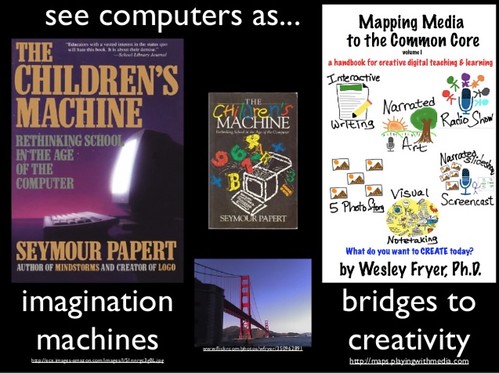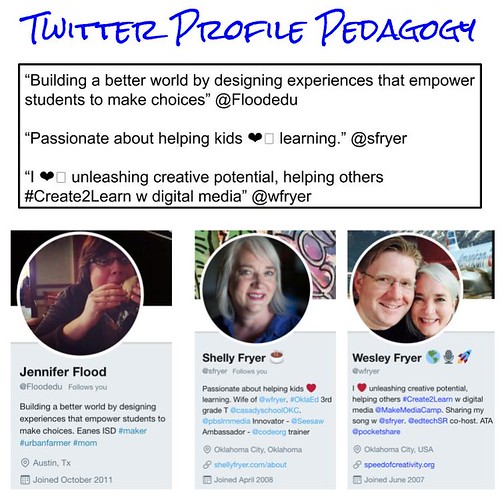Yesterday I was blessed by the opportunity to attend and participate in day 2 of the 2018 LearnFest (@theLearnFest) Conference in Austin, Texas. LearnFest, or “The Learning Festival,” is Carl Hooker‘s (@mrhooker) new iteration of iPadPalooza. LearnFest joins a very short, personal list of top quality, amazing educational technology professional development events. These include The Mobile Learning Experience in Arizona (@tonyvincent and @azk12), Miami Device in Florida (@felixjacomino), UnPlug’d in Ontario (@thecleversheep), and the Willowood Technology Summit (@nctplarry) in Texas. Unfortunately those four events have either been discontinued or morphed into other events with different leadership. In all of these cases, however, transformative learning is possible mainly because of the amazing and passionate educators who come together to share and learn collaboratively. That dynamic continued for me (and I am sure many others) at #LearnFestATX yesterday.
The founder of the #LearnFestATX @TheLearnFest learning feast: @mrhooker! pic.twitter.com/viJU84ZhUF
— Wesley Fryer, Ph.D. ??? wesfryer.com/after (@wfryer) June 14, 2018
This summer’s LearnFest event was “the beta” of the new model, which included several new elements like teacher “Shark Tank pitches” for fundable proposals to improve school and learning for students. The winning team won up to $1000 to implement their proposal, which they had brainstormed and developed in a few hours the day before.
1 Shark Tank pitch is about to win $1000 @TheLearnFest – ? ?? #LearnFestATX #LibrariesRRock pic.twitter.com/ir0AqjZXO8
— Kristen Fournier (@pacifickle) June 14, 2018
The learning highlight of yesterday for me took place in the closing, which featured four TED-style presentations by different brave (and perhaps crazy!) speakers. Carl titled this segment of the closing event, “What’s HOT in Ed Tech,” and each volunteer presenter had to spin a virtual wheel (on an iPad app, of course) to select a type of hot pepper they had to eat first, before giving their presentation. This was the brainchild of Chris Miller (@EdTechChris), who was one of the four speakers along with Carl.
Now it's time for "What's HOT in #edtech" and @mrhooker is going first – He spun and got the "jalapeno" #LearnFestATX Giving a preso on #AI Artificial Intelligence after eating it ?????? pic.twitter.com/vEcRaubAxY
— Wesley Fryer, Ph.D. ??? wesfryer.com/after (@wfryer) June 14, 2018
Each of the presentations were excellent (hot peppers aside) and included a great mix of thought provoking trends as well as new tools and technologies to try out in the weeks ahead. Carl’s presentation about artificial intelligence echoed (coincidentally) much of my own thinking about AI: We need to be grappling together with peer teachers and students about what teaching, learning, life and work can and should look like as powerful AI bots are increasingly available to “do our bidding” and augment our capacities to do productive as well as creative work.
Mark Simmons (@t3chl0gic) presented second, and shared the phenomenal (and free) app “Novel Effect.” (@Novel_Effect) As you read a picture book which has been added to their large library, related and synchronized sound effects as well as music play to accompany your narration. The app listens to you read, to keep pace. Super cool!
https://twitter.com/San_Tacos/status/1007427191368572930
Chris Miller (@EdTechChris) presented last, and shared about Cisco Spark Board. I’ve heard a little about the Sparkboard, but Chris’ presentation made me realize I really need to check out this tool and learn about it in depth.
You did a great job presenting about this today! ?????? I have heard about the @cisco Sparkboard before but your preso really inspired me to check it out in earnest and learn more! ? #LearnFestATX
— Wesley Fryer, Ph.D. ??? wesfryer.com/after (@wfryer) June 14, 2018
Chris wrote a post about the Sparkboard on his blog which gives more information, including a link to this instructional video by amazing Oklahoma educator (and “Cisco Education Advocate” Lance Ford (@lancemford):
The third presentation in the “What’s HOT in Ed Tech” series, by Jennifer Flood (@Floodedu), was my favorite from the entire LearnFest 2018 event, and is the inspiration for the title of this post.
Yes it was! You inspired me and made the entire drive down from OKC worth it!!! ?????? #LearnFestATX
— Wesley Fryer, Ph.D. ??? wesfryer.com/after (@wfryer) June 15, 2018
Jennifer reminded all of us in the audience yesterday at Westlake High School how important student-centered pedagogy and learning theories are in schools and classrooms. She quoted four of my favorite educational luminaries: John Dewey, Maria Montessori, Seymour Papert, and Jean Piaget.
#LearnFestATX I loved this inspiring preso by @Floodedu reminding us of the vital role of student-centered pedagogy: Dewey, Montessori, Papert! pic.twitter.com/6H78hdQwJi
— Wesley Fryer, Ph.D. ??? wesfryer.com/after (@wfryer) June 14, 2018
Jennifer also shared a pedagogically-aligned book recommendation with us that I’m adding to my summer reading list, “A Schoolmaster of the Great City” by Angelo Patri. (Available free via the Internet Archive. It was published in 1917 and has passed out of copyright.)
#LearnFestATX Great book recommendation from @floodedu "A Schoolmaster of the Great City" https://t.co/x8qYDRAoYQ pic.twitter.com/PCf38ijMGb
— Wesley Fryer, Ph.D. ??? wesfryer.com/after (@wfryer) June 14, 2018
Here’s why I found Jennifer’s words so inspiring and personally meaningful.
Our family has lived in Oklahoma since 2006, and as a state we have pitifully low expectations for our public schools and public school teachers. The majority of our elected officials in the Oklahoma State Legislature simply don’t care about the quality (or lack of quality) of education in our public schools. This was dramatically highlighted this past spring, in the prolonged Oklahoma teacher walkout, which resulted in minimal legislative changes. The threat of the walkout prompted the legislature to pass a teacher payraise before the walkout started, but that law lost some of its funding mechanisms and is now threatened by a November ballot initiative. That teacher pay raise was the first tax increase in Oklahoma in the past 26 years, since the state voted to require a 3/4ths “supermajority” to raise any new revenue. Because of that supermajority requirement for revenue bills, our Oklahoma legislature has effectively lost its ability to meaningfully govern our state.
From '79-'13 OK corrections spending has increased 272% more than education spending during the same period. Chew on that. #oklaed #okleg
— Tyler Bridges (@bridgestyler) July 7, 2016
Combined with the urban/rural divide which holds political compromise and progress hostage on many other issues, our state is “stuck in a pit” where we can’t find the political will or leadership to adequately fund pubic education as required by state law.
"Urban and Rural divide could be a big issue next week with the #OklaEd teacher walkout. It's a big issue when it comes to local control issues like min wage & property taxes" by @jdunnington #OklaEd #OkLeg
— Wesley Fryer, Ph.D. ??? wesfryer.com/after (@wfryer) March 29, 2018
How do these Oklahoma political realities relate to Jennifer Flood’s presentation yesterday at the LearningFest in Austin?
Almost all the requirements to become a classroom teacher in Oklahoma have been effectively abandoned because of our teacher shortage and funding crisis. We’ve seen a dramatic spike in the number of issued emergency teaching certificates in our state, from 32 in 2011 to over 2000 in 2018.
“In 2011, only 32 people held emergency teaching certificates in Oklahoma. As of 2018, nearly 2,000 emergency teaching certifications have been licensed in the state.”#OklaEd #OklahomaTeachersWalkout https://t.co/42voA1LYv8
— Wesley Fryer, Ph.D. ??? wesfryer.com/after (@wfryer) April 10, 2018
The political, economic, and educational culture in Oklahoma today preaches the following fiction to all stakeholders:
You don’t need any special educational preparation, experience, or background to be a K-12 teacher in Oklahoma. Pedagogy, learning theories, classroom management experiences, student teaching, mentorship, or any other type of teacher preparation are unnecessary and not of value. If you’re breathing, not a convicted felon, and have a college degree, you’re ready to teach in an Oklahoma public school classroom today.
This educational culture is beyond distressing.
Seeing the photographs and words of John Dewey, Maria Montessori, Seymour Papert, and Jean Piaget yesterday reminded me about why I became a teacher in the first place, and why I studied Curriculum and Instruction to earn my Ph.D. Authentic learning is so much more than “the delivery of information” into the ears, eyes, and minds of others. It’s about experiences, reflection, collaboration, and making meaning which is attached to previously built schemas in our brains. Technology tools are most effective, empowering, transformative, and amazing when we view computers not simply as delivery platforms but rather as “imagination machines” and “bridges to creativity.”
Through all our discussions of technologies, apps, websites and AI-powered automation, however, it’s vital that we remember the importance and value of the teacher, and specifically the pedagogies embraced by teachers. Jennifer reminded all of us of this in her presentation yesterday. Despite the distraction (and visible pain) of having to eat an habenero first, these messages come through to me from Jennifer loud and clear, and I was moved.
Pedagogy and beliefs about learning can sometimes be glimpsed through Twitter profiles. In her current Twitter profile, Jennifer Flood shares with us an important element of her educational philosophy and pedagogy:
Building a better world by designing experiences that empower students to make choices.
So does my wife, Shelly Fryer:
Passionate about helping kids love learning
My own pedagogy and personal educational mission is reflected in my latest Twitter profile byline too:
I love unleashing creative potential, helping others #Create2Learn w digital media
It was inspiring and invigorating to make multiple connections with different friends and educators down at the Learning Festival yesterday, but it was also important for me personally to be reminded of the power of pedagogy.
As human beings, the words we say to others make a difference. As teachers, the philosophy of learning which shapes the experiences we design and facilitate for and with students makes a difference too. If you haven’t read directly (as Jennifer exhorted us yesterday) the words of Dewey, Montessori, Papert, and Piaget, add them to your reading list now and start reading them soon. Add John Holt to that list, along with Frank Smith. And Angelo Patri.
Pedagogy and learning theories matter, because they shape the teachers we are and the experiences we craft together for children. Thank you Jennifer Flood. You reminded me about what is most important in education and schools, and inspired me to consider again the roles I have to play in teacher education.
I’m here for the learning revolution. Bring on LearnFest 2019!
Burned my face off but it was awesome! #LearnFestATX #sayyesmore pic.twitter.com/V2ngviVgHb
— Jennifer Flood (@Floodedu) June 14, 2018


